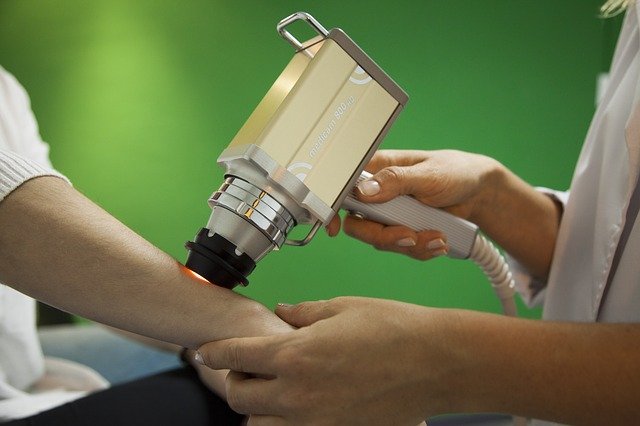Symptoms and Treatments for Skin Cancer

Skin cancer is a common and locally destructive (malignant or cancerous) growth of the skin. It originate from the cells that line up along the skin membrane that separates the superficial layer of skin from the deeper layers. Unlike cutaneous cancerous melanoma, the vast majority of these sorts of skin cancers have a limited potential to spread to other parts of the body and become life-threatening.
There are three major types of skin cancer: (1) basal cell carcinoma (the most common) and (2) squamous cell carcinoma (the second most common), which originate from skin cells, and (3) melanoma, which originates from the pigment-producing skin cells (melanocytes) but is less common, though more dangerous, than the first two varieties.
What are the risk factors for skin cancer?
The most common risk factors for skin cancer are as follows.
Ultraviolet light exposure, either from the sun or from tanning beds. Fair-skinned individuals, with hazel or blue eyes, and people with blond or red hair are particularly vulnerable. The problem is worse in areas of high elevation or near the equator where sunlight exposure is more intense.
A chronically suppressed immune system (immunosuppression) from underlying diseases such as HIV/AIDS infection or cancer, or from some medications such as prednisone or chemotherapy
Exposure to ionizing radiation (X-rays) or chemicals known to predispose to cancer such as arsenic
Risk factors for skin cancer include:
Signs and symptoms of skin cancer
Skin cancer can be found early, and you and your health care providers play key roles in finding skin cancer. Learn how to examine your skin for changes. If you have any of these symptoms, see a provider:
• Any change on your skin, especially in the size or color of a mole, growth, or spot, or a new growth (even if it has no color)
• Scaliness, roughness, oozing, bleeding, or a change in the way an area of skin looks
• A sore that doesn't heal
• The spread of pigment (color) beyond its border, such as dark coloring that spreads past the edge of a mole or mark
• A change in sensation, such as itchiness, tenderness, or pain
How to prevent?
Many types of cancer can be prevented by avoiding triggers that cause tumors to develop. Prevention strategies include protection from the sun by the use of sunscreens, protective clothing, and avoidance of the sun during the peak hours of 9 AM to 3 PM. Parents should ensure children are protected from the sun. Do not use tanning beds, which are a major cause of excess ultraviolet light exposure and a significant risk factor for skin cancer.
How it is treated?
In choosing the best treatment option, your doctor will consider your age and general health, the type and size of cancer, where it is on your body and what you want. The treatment choice will also depend on whether the skin cancer has spread elsewhere in your body.
Types of treatment include:
• Surgery
• Freezing
• Scraping
• Radiotherapy
• Chemotherapy.
Alternative and Complementary Therapies for Skin Cancer
Once skin cancer is diagnosed, the only acceptable treatment is medical care. Alternative approaches may be useful in cancer prevention and in combating nausea, vomiting, fatigue, and headaches from chemotherapy, radiation, or immunotherapy used to treat advanced skin cancer. Be sure to discuss any alternative treatments you are considering using with your cancer doctor.
Nutrition and Diet for Skin Cancer
Skin experts know that the mineral zinc and the antioxidant vitamins A (beta-carotene), C, and E can help repair damaged body tissue and promote healthy skin. Now, researchers are trying to determine whether these and other nutrients might protect skin from the harmful effects of sunlight. To test the theory, selected skin cancer patients are given experimental supplements of these vitamins in the hope of preventing cancer recurrence. As of now, there is no convincing evidence that these agents are helpful.